First person
For farmer Doug Nicholl, my Grandad, it’s the end of an era
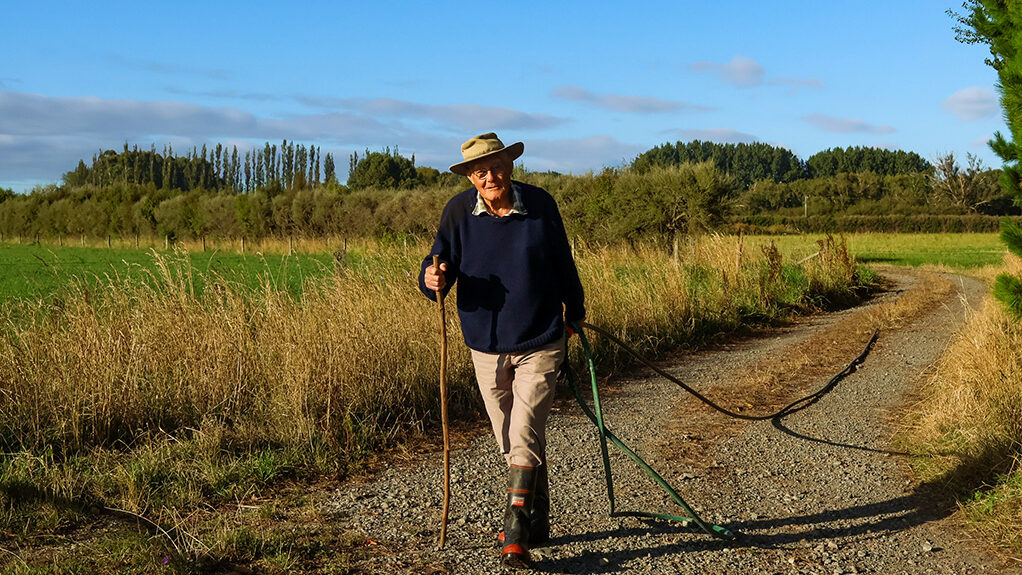
caption
Doug Nicholl walking down the gravel road on his farm in Kaiapoi, New Zealand, dragging a hose to fill up the tub for the cattle’s drinking water on Feb. 25, 2024. He has been instructed by his doctor to use a walking stick when he’s out on the farm to support his poor balance due to early onset Parkinson’s disease.Parkinson’s, cancer force 78-year-old New Zealander to sell his cattle farm
Editor's Note
Journalism student Ainslie Nicholl-Penman profiles her grandfather, who must give up his New Zealand farm after decades of food production
I wake up to an early morning chorus of birds filling the air in Kaiapoi, New Zealand, as grandad rises to meet another day on his sunny, arid 13-hectare farm.
Beneath the radiant February sun, I follow Grandad as he makes his daily trek from his farmhouse to the fields, tending to his 44 beef cattle to make sure they’re well-fed and have sufficient water to sustain them through the day.
“Come on boys!” he yells, waving his wooden staff toward the cattle while pushing them out of the paddock full of eaten grass, to the fresh one down the gravel road.
We follow the cattle, ensuring they stay on track to their next destination. Grandad divides his cattle into two lots to rotate them between rectangular shaped paddocks. It doesn’t take long for the animals to quickly graze through the grass before he moves them along.
This morning ritual is getting harder.
“It’s tough when you get old,” he tells me on my first trip back to New Zealand in eight years. “I was diagnosed with early onset Parkinson’s disease four years ago, which has made farming quite difficult to do on my own.”
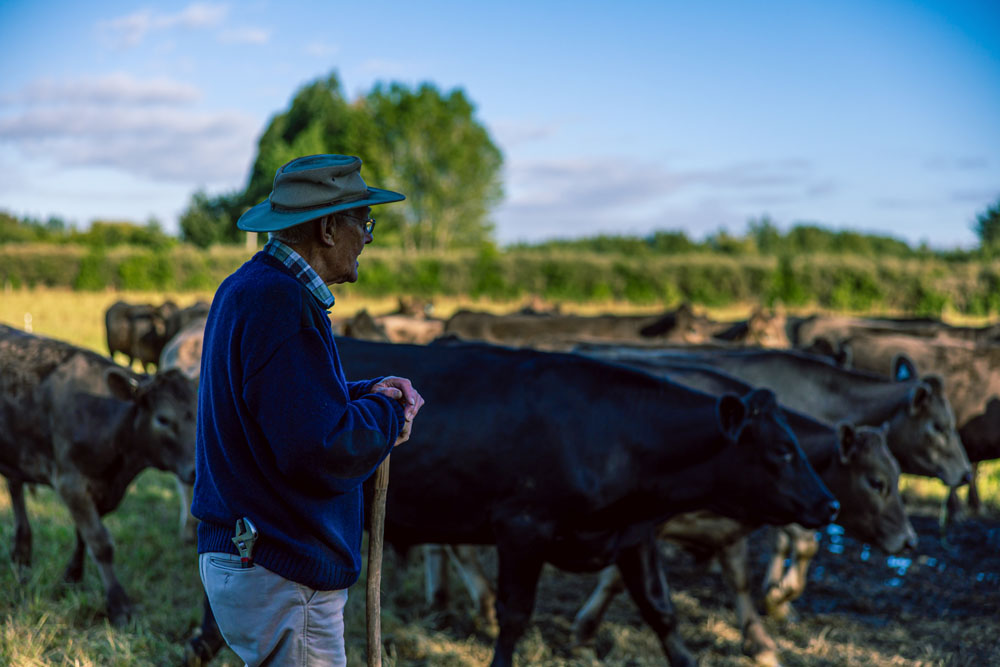
caption
Doug Nicholl with his lot of 30 beef cattle, catching his breath after moving them to a fresh paddock. Nicholl always carries a wrench in his back pocket for when he needs to access the hose system in the fields.Grandad has changed since the last time I visited. He now walks slower to stay steady on his feet and his shoulders are hunched, making him look five centimetres shorter than usual. Before, he would spend his entire day out in the field, and now he cannot even go one hour outside without taking a snooze on the living room chair.
With the cattle fed and their water topped off, we make our way back to the house. Getting to and from his residence is like dodging a minefield. One loose wire or large stone could be dangerous for him.
His struggle with balance leads to frequent falls, resulting in a ruptured Achilles tendon and a broken ankle on his right leg back in 2021.
“Two years later I did the same exact thing to my left leg,” grandad says, while lifting his pant leg to prove his scar.
His health issues do not stop there. In 2018, he was diagnosed with prostate cancer and drove 30 minutes into Christchurch, which holds the largest hospital on the South Island, for treatment five times a week.
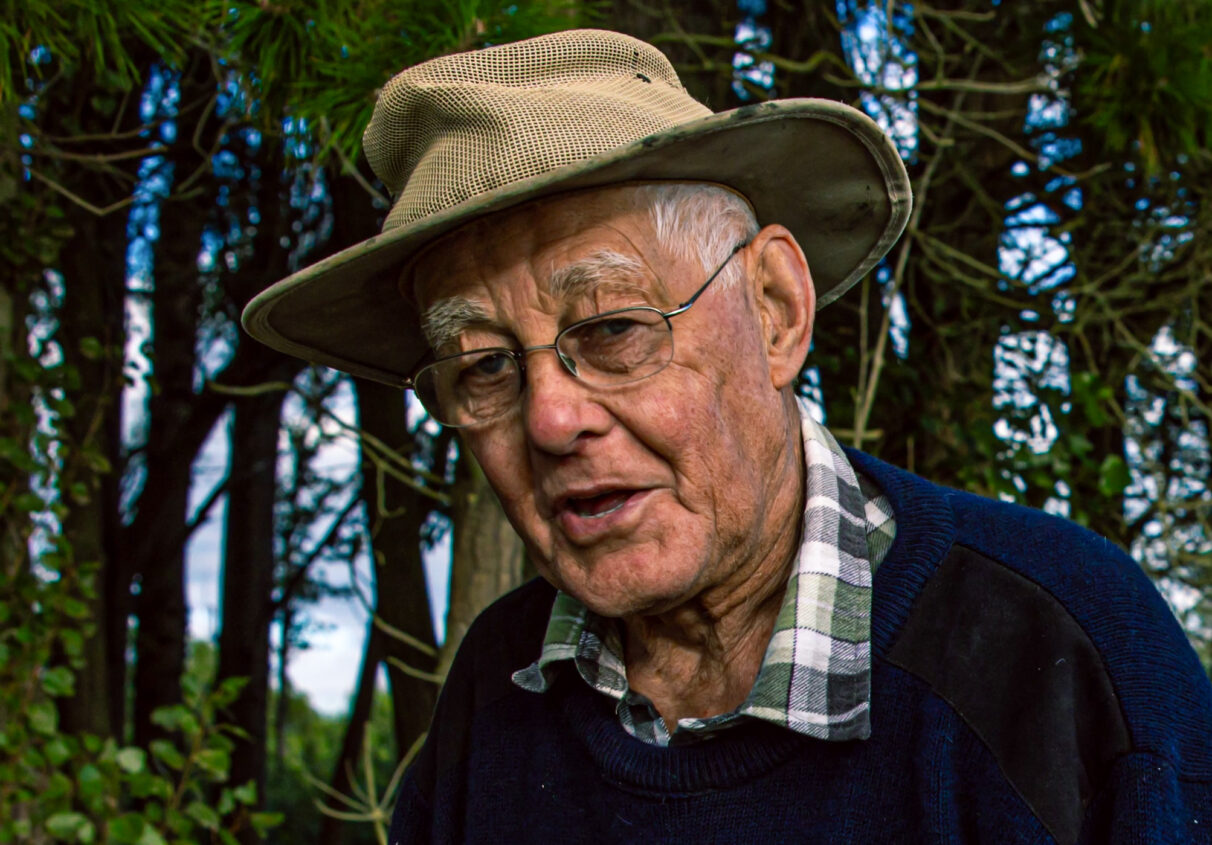
caption
Doug Nicholl, 78, walks up the road to his farmhouse in Kaiapoi, New Zealand, after moving his cattle into a fresh paddock.Within the past year, Grandad’s prostate cancer has not only relapsed, but spread to his bones, which has caused him unimaginable skeletal pain.
“He’s a stubborn old man,” my dad Calvin says, while taking the farm truck out for a spin. “He loves his farm too much to admit he’s got something wrong.”
Despite Grandad’s poor balance, he refuses to use a cane and only relies on a long stick when walking around the farm. Even with his stick, he still needs someone to help him when moving the cattle around.
“Our neighbours have been a huge help since my health has gone down,” he tells me as we sit in his backyard. “We’ve been on this property for 26 years and I honestly don’t know what we would have done without their continuous support.”
Grandad says support from the surrounding community has made him realize his efforts alone will not suffice to keep the farm running and admits it’s time to leave the property in other hands.
Reminiscing about his past
Farming was always part of Grandad’s life. His father owned a dairy farm in Harewood, a northwestern suburb of Christchurch, and introduced him to long hours in the fields at 10 years old.
“The old man had me working every day with the cows, making sure they were all lined up in front of the machine for their daily milking,” says Grandad.
He realized early on there was no such thing as a day off for a dairy farmer, since cows must be milked twice a day.
“I had my time with dairy farming,” he tells me. “Once I left home, I was ready to move on to something different.”
After attending New Zealand’s Lincoln College, now known as Lincoln University, Grandad secured a gig working for a farmer named Joe Ainge, where he learned skills for vegetable, sheep, and cattle farming.
“Joe taught me almost everything I know,” he says as he disconnects the electric fence surrounding his cattle.
“I found my love for cattle through him, but boy was he a hard ass.”
Between harvesting vegetables, feeding or shearing sheep and taking care of the cattle, farming consumed his life.
He and my grandmother, his first wife, bought land in 1980. They named it Ainsley Farm, deriving from the Greek meaning ‘one’s own meadow,’ located in the heart of Woodend, Canterbury.
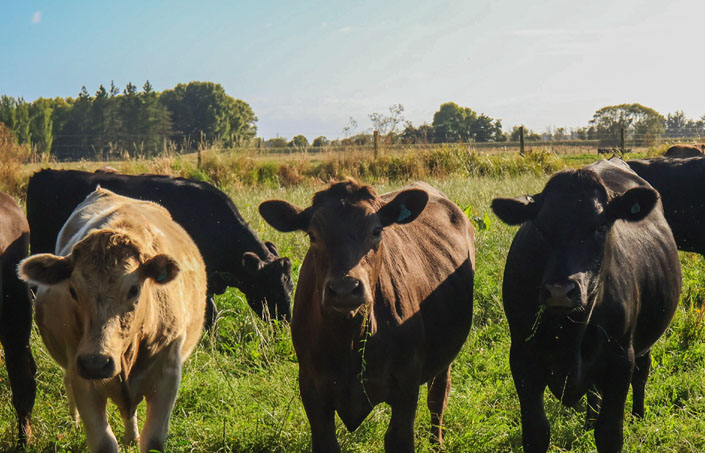
caption
Three cows munch on fresh grass on Doug Nicholl’s Marakai farm in Kaiapoi, New Zealand.Grandad used his work ethic from farming with his father and Ainge to start his own vegetable business, causing him to work long hours every day.
“He would get up every morning at 6 a.m. to harvest the vegetables and would drive into town to sell them to local markets,” dad says, who was eight years old when Grandad bought the farm.
“He made himself known in the community and became a well-respected man.”
Dad told me that grandad would sometimes work 15-hour days to ensure he gained profit from his vegetables.
“Dad made my brother and I work on the farm as much as we could and would hound us if we did something wrong,” dad told me one morning in the truck.
I think Ainge’s hard ass teaching methods may have become ingrained in Grandad’s way of doing things.
Two years after buying Ainsley Farm, Grandad remarried and bought a new farm, continuing his vegetable sales under a different name – Marakai farm – the Māori term for ‘cultivation of food.’
Accepting the inevitable
Growing vegetables was hard work for Grandad, but he says that’s what kept him going.
However, a brain aneurysm at 53 lured him to a less physical labour – beef cattle.
“I switched to cattle farming in 2006, which is an easier job for an old guy like me,” Grandad says to me as he shuts the gate to the paddock.
“I’ve grown to really love animals through them, the way they live is truly amazing.”
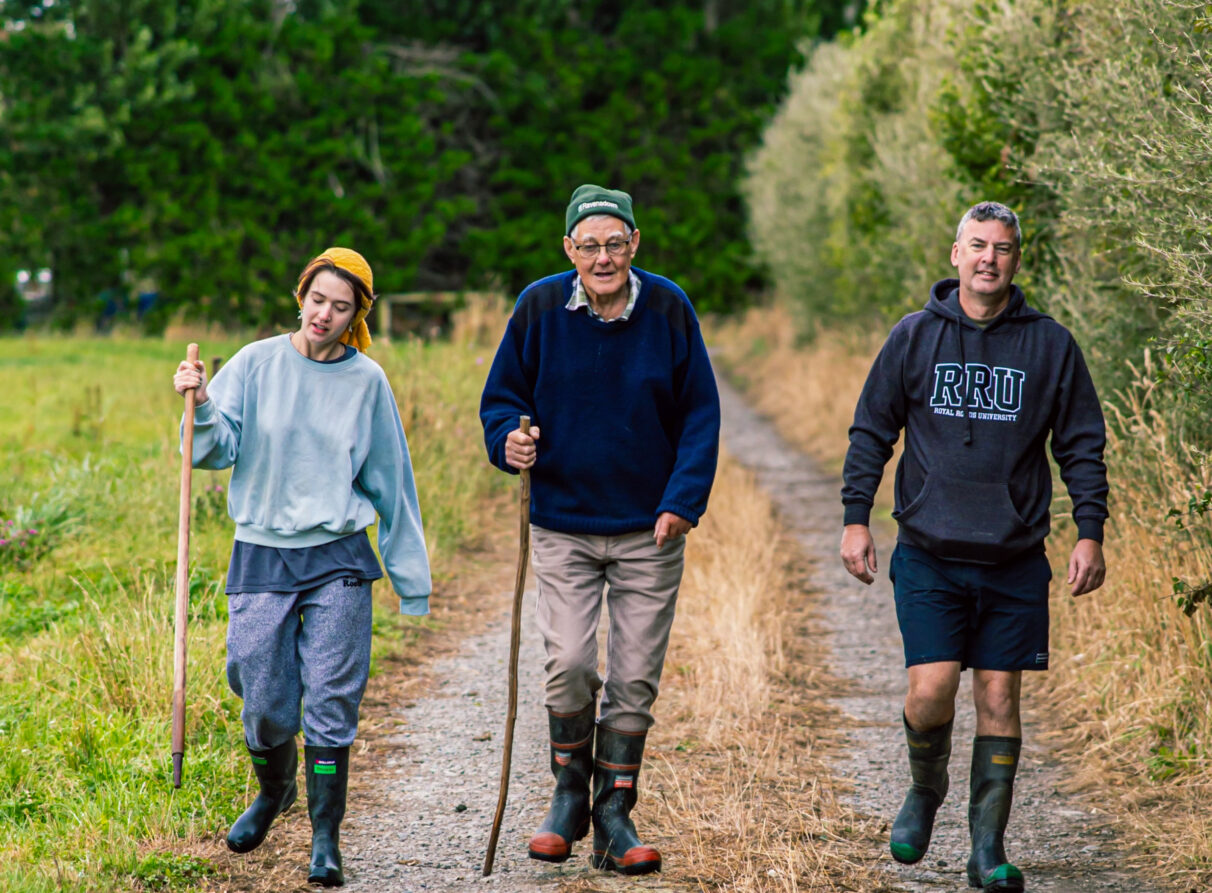
caption
Doug Nicholl, his son Calvin Nicholl (right), and his granddaughter Ainslie Nicholl-Penman, walk up the road on Marakai Farm in Kaiapoi, New Zealand.Livestock has become Grandad’s favourite part about farming, and I can see the joy beaming off him when treating the cattle with the utmost respect.
“I know their eventual fate is to end up at a butcher but giving them a good life while they’re alive is all I can care about,” says Grandad. “If all they want is a scratch behind the ear, then that’s what I’ll do.”
Grandad says he is ready to leave Marakai Farm in good hands. He and his wife Marg listed their property on the market in August 2023, and are still waiting for offers.
“If it were up to me, I would like to decide who is in charge of the farm next,” says Grandad, staring out his farmhouse window to the open field. “The reality is, I can no longer do it on my own and a buyer is all we’re asking for.”
Grandad has dedicated his life to providing the South Island with sustainable food, and his hard work does not go unseen.
“Some of the neighbours said I can come by anytime to help out on their farm once we move,” he tells me while holding my hands as I wait to board a plane back to Canada. “Farming has been my life for 68 years, I’m not quite sure who I am without it.”

